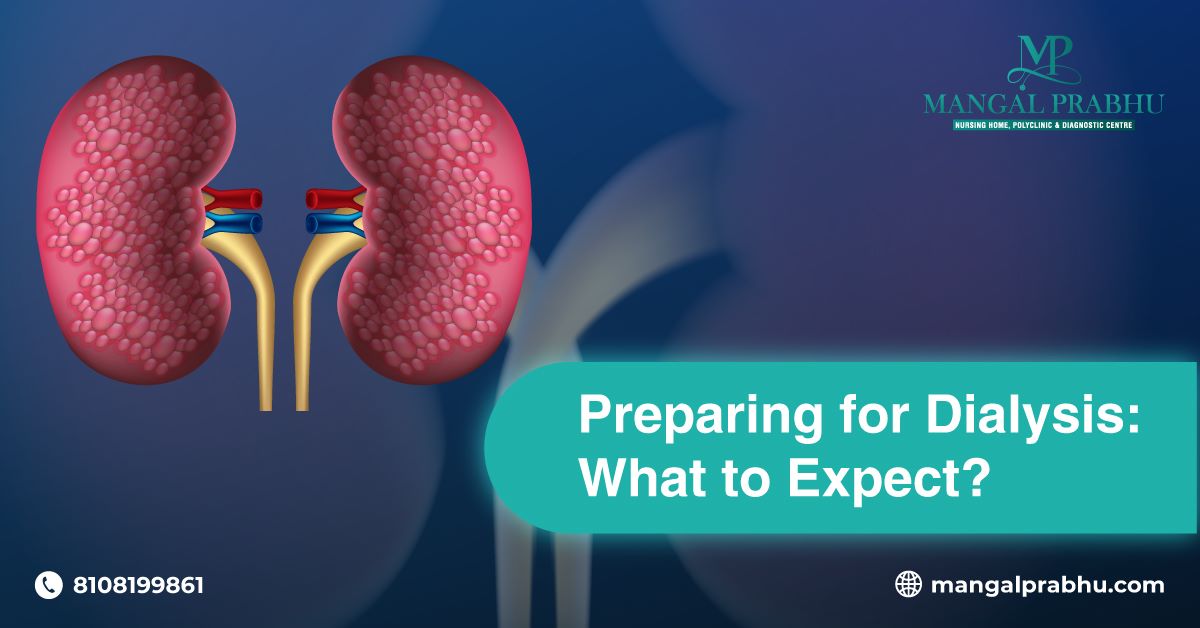
Preparing for Dialysis: What to Expect?
Your kidneys can fail due to many reasons. Chronic Kidney Failure, diabetes, lupus, and other issues can affect your kidney function, resulting in the buildup of toxins in your bloodstream. A nephrologist in Navi Mumbai recommends dialysis when your kidney function drops to a certain level, usually 15 percent. Let’s discover more about dialysis benefits, side effects, and preparation tips.
Types of Dialysis
Dialysis is performed in two ways:
- Hemodialysis: The blood is transferred for filtering through a dialyzer to an external machine. The purified blood is then returned to your body. It is a 3-4 hour session, performed thrice a week.
- Peritoneal Dialysis: In Peritoneal dialysis, a catheter is placed in your abdomen and is connected to the bag containing the dialysis solution. You can drain the liquid into another empty bag once it has collected the waste from your bloodstream. The procedure must be repeated 3-4 times a day.
How to Prepare for Dialysis
The preparation for dialysis is different for both types of procedures. For hemodialysis, the Arteriovenous fistula (AV) is created in your arm by joining an artery with the vein to create a broader blood vessel.
If you have too narrow blood vessels for this procedure, the surgeon might connect the two using a hollow tube, called a graft. By expanding the size of the blood vessels, AV ensures smoother blood flow in and out of your system. If it’s an emergency, the surgeon might insert a tube through your neck to get quick access to the blood vessels.
Also Read: What Is The Importance Of Dialysis? Which Patients Require It The Most?
For both procedures, there are certain restrictions regarding your food and fluid intake. Your healthcare provider will advise you to limit the fluid, as the dialysis procedure can’t remove the waste that’s accumulated in 3-4 days from your blood.
You also need to watch your diet. Excess intake of sodium, potassium, and phosphorus can increase the level of these minerals in your bloodstream quickly. It’s best to work with a dietician to have the best diet plan for your treatment.
Benefits of Dialysis
The biggest advantage of dialysis is that it removes waste and extra fluid within your body to prevent them from building up and damaging your organs. It also maintains the levels of sodium and potassium in your body. Moreover, dialysis regulates your blood pressure and prevents kidney diseases.
Possible Risks of Dialysis
Inserting a catheter in your abdomen carries significant risks. For example, bacteria and contaminants can enter your stomach through this catheter, resulting in vomiting, nausea, and fever. Likewise, hemodialysis carries the risk of infection around the site of the incision. Here are some side-effects of dialysis:
- Muscle cramps
- Low blood pressure
- Weakness from sudden blood fluctuation
- Blood loss
- Hernia
A kidney transplant is a good alternative for those who can’t schedule regular visits to the dialysis center in Navi Mumbai.
Conclusion
Every person’s body reacts differently to dialysis. Your risk of developing side effects also depends on your health condition and the type of dialysis you are considering. Discuss your risk factor with the healthcare provider to ensure smooth dialysis sessions.
